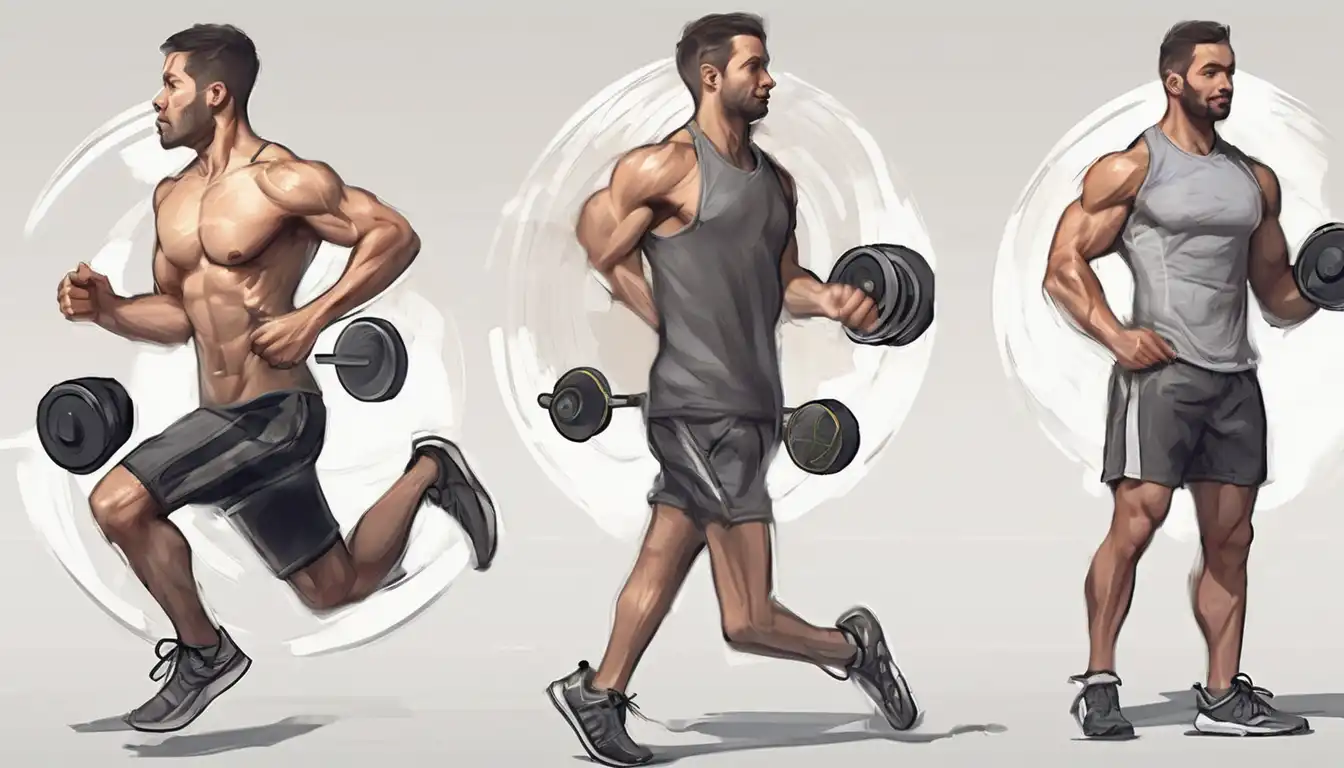Getting Started with Your Fitness Journey
Embarking on a fitness journey can feel overwhelming, but with the right approach, anyone can build a sustainable workout routine that delivers real results. Whether you're looking to lose weight, build strength, or simply improve your overall health, this comprehensive guide will walk you through every step of creating your first fitness plan.
Why Starting a Fitness Routine Matters
Regular exercise offers numerous benefits beyond just physical appearance. Consistent physical activity can boost your energy levels, improve mental health, reduce stress, and lower your risk of chronic diseases. According to the CDC guidelines, adults need at least 150 minutes of moderate-intensity exercise per week to maintain good health.
Assessing Your Current Fitness Level
Before diving into any workout program, it's crucial to honestly evaluate your current fitness level. Consider factors like your endurance, strength, flexibility, and any physical limitations. This self-assessment will help you set realistic goals and choose appropriate exercises. Many beginners find it helpful to track their baseline metrics to measure progress over time.
Key Areas to Evaluate
- Cardiovascular endurance: How long can you walk or jog without stopping?
- Strength: How many push-ups or squats can you complete with proper form?
- Flexibility: Can you touch your toes or perform basic stretches comfortably?
- Balance: How stable are you during single-leg exercises?
Setting Realistic Fitness Goals
Effective goal-setting is the foundation of any successful fitness routine. Instead of vague aspirations like "get fit," create SMART goals: Specific, Measurable, Achievable, Relevant, and Time-bound. For example, "I will walk 30 minutes daily, five days per week, for the next month" is much more actionable than a general fitness goal.
Sample Beginner Goals
- Complete three 30-minute workouts per week for one month
- Increase daily step count from 5,000 to 8,000 steps
- Learn and practice five basic strength exercises with proper form
- Attend two fitness classes per week for six weeks
Choosing the Right Type of Exercise
Your fitness routine should include a balanced mix of cardiovascular exercise, strength training, and flexibility work. This combination ensures comprehensive health benefits and prevents workout boredom. Beginners often find success by starting with activities they enjoy, which increases the likelihood of consistency.
Cardiovascular Options for Beginners
Cardio exercises get your heart pumping and improve endurance. Excellent starting points include brisk walking, cycling, swimming, or using elliptical machines. These low-impact activities are gentle on joints while providing substantial health benefits. Remember to start slowly and gradually increase intensity as your fitness improves.
Strength Training Basics
Strength training builds muscle, boosts metabolism, and strengthens bones. Beginners should focus on bodyweight exercises like squats, push-ups, and planks before progressing to weights. Proper form is more important than heavy weights, so consider working with a trainer or using reliable instructional resources to learn correct techniques.
Importance of Flexibility and Recovery
Flexibility exercises like stretching and yoga improve range of motion and reduce injury risk. Equally important is allowing adequate recovery time between workouts. Your muscles need time to repair and strengthen, so avoid working the same muscle groups on consecutive days.
Creating Your Weekly Workout Schedule
A balanced weekly schedule might include three days of cardio, two days of strength training, and daily flexibility work. Here's a sample beginner schedule:
- Monday: 30-minute brisk walk + full-body stretching
- Tuesday: Bodyweight strength circuit (squats, push-ups, planks)
- Wednesday: Active recovery (light walking or yoga)
- Thursday: 30-minute cycling + stretching
- Friday: Strength training with resistance bands
- Saturday: 45-minute hike or longer walk
- Sunday: Rest day with light stretching
Essential Equipment for Beginners
You don't need expensive equipment to start your fitness journey. Basic items like comfortable athletic shoes, workout clothes, and a water bottle are sufficient. As you progress, consider investing in a yoga mat, resistance bands, or dumbbells. Many effective workouts require no equipment at all, using just your body weight for resistance.
Proper Nutrition and Hydration
Exercise and nutrition work together to support your fitness goals. Focus on balanced meals containing lean proteins, complex carbohydrates, healthy fats, and plenty of vegetables. Hydration is equally important—drink water before, during, and after workouts. For personalized advice, consult our nutrition guide for active beginners.
Staying Motivated and Tracking Progress
Consistency is key to fitness success. Use these strategies to maintain motivation:
- Find a workout buddy for accountability
- Track your workouts in a journal or app
- Celebrate small victories along the way
- Mix up your routine to prevent boredom
- Set new goals as you achieve existing ones
Common Beginner Mistakes to Avoid
Many newcomers make similar errors that can hinder progress or lead to injury. Avoid these common pitfalls:
- Doing too much too soon: Gradually increase intensity to prevent burnout
- Neglecting proper form: Quality movements prevent injuries
- Skipping warm-ups and cool-downs: Prepare your body for exercise and aid recovery
- Comparing yourself to others: Focus on your own progress
- Ignoring pain: Distinguish between muscle soreness and injury pain
When to Seek Professional Guidance
If you have pre-existing health conditions, significant weight to lose, or feel unsure about proper exercise techniques, consider consulting a healthcare provider or certified personal trainer. Professional guidance can ensure you're exercising safely and effectively. Many gyms offer introductory sessions with trainers specifically for beginners.
Building Long-Term Fitness Habits
The ultimate goal is to make fitness a sustainable part of your lifestyle. Focus on developing habits rather than pursuing quick fixes. Remember that progress isn't always linear—some weeks will feel easier than others. The most important thing is to keep showing up and doing what you can.
Starting a fitness routine is one of the best investments you can make in your long-term health. By following these beginner-friendly guidelines, listening to your body, and maintaining consistency, you'll build a foundation for lifelong fitness success. Every workout brings you one step closer to your health goals, so take that first step today and begin your transformation journey.
